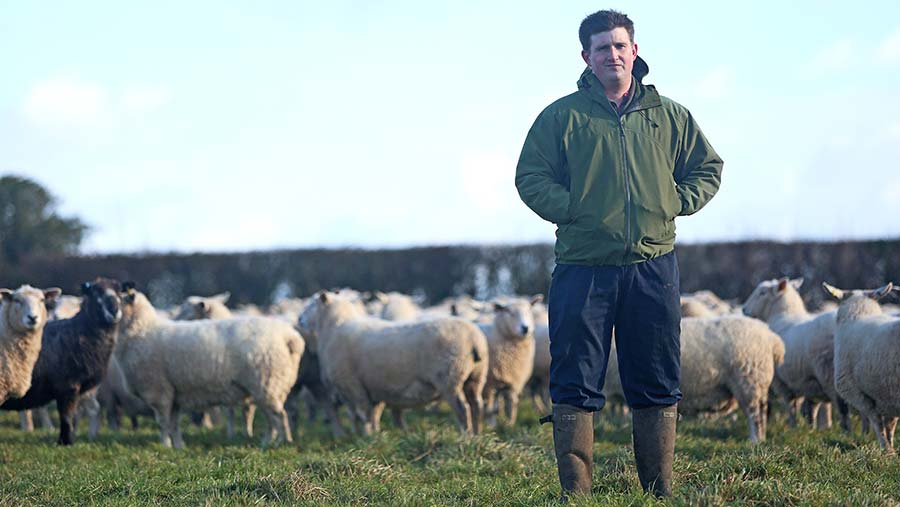Farmer Focus: I’ll lamb everything in one block next year
 © Richard Stanton
© Richard Stanton As we head into the autumn, here at Glen Farm there are plenty of things to do.
We are busy drafting off and weighing lambs most weeks now.
Grades have been excellent so far, but growth is slower than in previous years, mainly due to increased stocking and a greater worm burden.
Many of the May-born lambs have been sold as stores.
They have struggled to get a good start here behind the main flock of April-born lambs, so are better off on another farm.
I will lamb everything in one block next year to make management easier and will probably keep multiples and hoggs on plantain, weaning them early.
See also: Read more from the livestock farmer focus writers
Leaving triplets on the ewe, but with adequate nutrition, will significantly reduce labour and costs at lambing time.
I have spoken to several other farmers who have seen good results at weaning through doing this – and with no real drop in scanning percentage.
See also: Mood among sheep and beef producers improving
Grass growth has been good. The main flock of ewes has been moved over to a block of HLS grazing, and hoggs have been kept on the better ground, acting as toppers in front of fattening ewe lambs.
Ram lambs have been left entire and are being finished on plantain.
Delivering results
We have also sheared all remaining lambs under 34kg to help increase dry matter intakes and promote growth.
This, together with a mineral bolus, is beginning to make a marked improvement to the smaller/younger lambs.
Calves are continuing to grow well and we have just taken on some more regular labour to help.
Relying on self-employed farm workers simply hasn’t worked for me here.
Their order of priorities is somewhat different from mine – they are generally expensive, let you down when you most need them, and their quality of work dwindles over time.
I’m keen to expand the business and in order to do that have decided I need a regular worker on set hours.
I have been running 150 stock units, two gritters, and an off-farm contracting enterprise largely on my own for the past 12 months. Working 80-120 hours a week all-year-around simply isn’t sustainable, despite what many say.
Jim Beary contract-rears 900 calves a year and has a growing flock of Aberfield-cross New Zealand Romneys on a county council farm. He also runs a contract gritting enterprise in winter.
